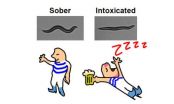(Press-News.org) Dr Zulfiqar Bhutta, Robert Harding Chair in global child health and policy and Co-Director of the Centre for Global Child Health at the Hospital for Sick Children, Toronto believes that criminal sanctions are necessary to deter growing research misconduct.
He says the fact that research fraud is common is no longer news, but a review by PubMed in 2012 found that 67% of research article retractions were "attributable to scientific misconduct, including fraud or suspected fraud".
Dr Bhutta says the consequences of research fraud on human health can be "huge" and that the damage to global vaccination coverage by Andrew Wakefield "has been incalculable". Wakefield, however, lives a free man, "raking in money from various support groups." Criminal proceedings after serious research fraud are rare with such practice being dealt with by institutions, he adds.
Although many think this is fair, given that it is hard to differentiate between fraud and incompetence, errors and misunderstanding, he argues that that "deliberate fraud is often prevalent." Plus, investigations are often expensive, costing between $116,160 and $2,192,620 per case.
Current measures are not enough, he says. "Although many perpetrators of research fraud never return to academic life; others may claw their way back to active research."
Bhutta concludes that although the costs of fraud are not known, "human, social and economic costs are likely considerable" and that "additional deterrence through punitive measures such as criminal proceedings should be added to the repertoire of measures available."
He concludes that because consequences can be huge, "it is time to regard such behaviour in the same category as criminal fraud and deal with it accordingly."
But Dr Julian Crane from the Department of Medicine at the University of Otago in New Zealand, argues that criminalisation would not have any deterrent effect and would undermine trust rather than improve it.
Crane says the former editor of The BMJ Richard Smith recently defined research misconduct as "the gentlemanly phrase for scientific fraud" and asks who "would not have fallen foul of this definition, so are we all fraudsters?"
Smith says research is "terrifyingly common" but only one in every 18,234 published abstracts are retracted because of real or suspected misconduct, which Crane adds "seems refreshingly small".
Crane appreciates that research misconduct does cause harm, but asks "would inviting the police to investigate more satisfactorily uncover misconduct or prevent harm?"
He believes that it lies with research organisations to reduce opportunities for misconduct and investigate appropriately. He concludes that criminalising research misconduct "is a sad, bad, even mad idea that will only undermine the trust that is an essential component of research and requires good governance not criminal investigators."
INFORMATION: END
Is it time to lock up those who commit research fraud?
Head to head: Should research fraud be a crime?
2014-07-16
ELSE PRESS RELEASES FROM THIS DATE:
Mutation stops worms from getting drunk
2014-07-16
Neuroscientists at The University of Texas at Austin have generated mutant worms that do not get intoxicated by alcohol, a result that could lead to new drugs to treat the symptoms of people going through alcohol withdrawal.
The scientists accomplished this feat by inserting a modified human alcohol target into the worms, as reported this week in The Journal of Neuroscience.
"This is the first example of altering a human alcohol target to prevent intoxication in an animal," says corresponding author, Jon Pierce-Shimomura, assistant professor in the university's College ...
Rainwater discovered at new depths
2014-07-16
University of Southampton researchers have found that rainwater can penetrate below the Earth's fractured upper crust, which could have major implications for our understanding of earthquakes and the generation of valuable mineral deposits.
It had been thought that surface water could not penetrate the ductile crust - where temperatures of more than 300°C and high pressures cause rocks to flex and flow rather than fracture - but researchers, led by Southampton's Dr Catriona Menzies, have now found fluids derived from rainwater at these levels.
Fluids in the Earth's crust ...
Transplantation of new brain cells reverses memory loss in Alzheimer's disease model
2014-07-16
SAN FRANCISCO, CA—A new study from the Gladstone Institutes has revealed a way to alleviate the learning and memory deficits caused by apoE4, the most important genetic risk factor for Alzheimer's disease, improving cognition to normal levels in aged mice.
In the study, which was conducted in collaboration with researchers at UC San Francisco and published today in the Journal of Neuroscience, scientists transplanted inhibitory neuron progenitors—early-stage brain cells that have the capacity to develop into mature inhibitory neurons—into two mouse models of Alzheimer's ...
JAMA study: Stroke risk and death rates fall over past 2 decades
2014-07-15
Fewer Americans are having strokes and those who do have a lower risk of dying from them finds a new study led by Johns Hopkins Bloomberg School of Public Health researchers.
The study found a 24 percent overall decline in first-time strokes in each of the last two decades and a 20 percent overall drop per decade in deaths after stroke. However, the decline in stroke risk was concentrated mainly in the over-65 set, with little progress in reducing the risk of strokes among young people. In contrast, the drop in stroke-related deaths each decade was primarily found among ...
Physicians struggle to clinically diagnose early HIV infection
2014-07-15
Despite the belief that early HIV infection presents with a well recognized flu-like syndrome, most physicians are unable to use clinical skills to differentiate those who should and should not be tested for HIV infection, according to a study published July 15 in Journal of the American Medical Association (JAMA).
Researchers at the BC Centre for Excellence in HIV/AIDS and University of British Columbia, Oregon Health and Science University, and Duke University Medical Centre analyzed data from over 24,000 patients, and discovered physicians have great difficulty recognizing ...
Study finds decrease in incidence of stroke, subsequent death
2014-07-15
In a study that included a large sample of black and white U.S. adults from several communities, rates of stroke incidence and subsequent death decreased from 1987 to 2011, with decreases varying across age-groups, according to a study in the July 16 issue of JAMA.
Stroke ranks fourth among all causes of death in the U.S. and is recognized as a leading cause of serious physical and cognitive long-term disability in adults. Almost 800,000 Americans suffer a stroke each year, and over 600,000 of them are first-ever events. Stroke incidence varies by gender and ethnic group, ...
Telecare intervention improves chronic pain
2014-07-15
A telephone-delivered intervention, which included automated symptom monitoring, produced clinically meaningful improvements in chronic musculoskeletal pain compared to usual care, according to a study in the July 16 issue of JAMA.
Pain is the most common symptom reported both in the general population and patients seen in primary care, the leading cause of work disability, and a condition that costs the United States more than $600 billion each year in health care and lost productivity. Musculoskeletal pain accounts for nearly 70 million outpatient visits annually in ...
History of stroke linked with increased risk of adverse outcomes after non-cardiac surgery
2014-07-15
In an analysis that included more than 480,000 patients who underwent elective noncardiac surgery, a history of stroke was associated with an increased risk of major adverse cardiovascular events and death, particularly if time elapsed between stroke and surgery was less than 9 months, according to a study in the July 16 issue of JAMA.
Noncardiac surgeries performed in patients with a recent heart attack or stent implantation have been associated with increased risk of perioperative cardiac events, as well as stent thrombosis (blood clot), and bleeding compared with ...
Physicians have higher rate of organ donation registration than general public
2014-07-15
A study that included about 15,000 physicians found that they were more likely to be registered as an organ donor compared to the general public, according to a study in the July 16 issue of JAMA.
A shortage of organs for transplant has prompted many countries to encourage citizens to register ("opt in") to donate their organs and tissues when they die. However, less than 40 percent of the public is registered for organ donation in most countries with a registry. "One common fear is that physicians will not take all measures to save the life of a registered citizen at ...
Common treatment of certain autoimmune disease does not appear effective
2014-07-15
Among patients with the systemic autoimmune disease primary Sjögren syndrome, use of hydroxychloroquine, the most frequently prescribed treatment for the disorder, did not improve symptoms during 24 weeks of treatment compared with placebo, according to a study in the July 16 issue of JAMA.
Primary Sjögren syndrome is characterized by mouth and eye dryness, pain, and fatigue, with systemic manifestations occurring in approximately one-third of patients. Despite the wide use of hydroxychloroquine in clinical practice, evidence regarding its efficacy is limited, according ...
LAST 30 PRESS RELEASES:
Jeonbuk National University researchers develop an innovative prussian-blue based electrode for effective and efficient cesium removal
Self-organization of cell-sized chiral rotating actin rings driven by a chiral myosin
Report: US history polarizes generations, but has potential to unite
Tiny bubbles, big breakthrough: Cracking cancer’s “fortress”
A biological material that becomes stronger when wet could replace plastics
Glacial feast: Seals caught closer to glaciers had fuller stomachs
Get the picture? High-tech, low-cost lens focuses on global consumer markets
Antimicrobial resistance in foodborne bacteria remains a public health concern in Europe
Safer batteries for storing energy at massive scale
How can you rescue a “kidnapped” robot? A new AI system helps the robot regain its sense of location in dynamic, ever-changing environments
Brainwaves of mothers and children synchronize when playing together – even in an acquired language
A holiday to better recovery
Cal Poly’s fifth Climate Solutions Now conference to take place Feb. 23-27
Mask-wearing during COVID-19 linked to reduced air pollution–triggered heart attack risk in Japan
Achieving cross-coupling reactions of fatty amide reduction radicals via iridium-photorelay catalysis and other strategies
Shorter may be sweeter: Study finds 15-second health ads can curb junk food cravings
Family relationships identified in Stone Age graves on Gotland
Effectiveness of exercise to ease osteoarthritis symptoms likely minimal and transient
Cost of copper must rise double to meet basic copper needs
A gel for wounds that won’t heal
Iron, carbon, and the art of toxic cleanup
Organic soil amendments work together to help sandy soils hold water longer, study finds
Hidden carbon in mangrove soils may play a larger role in climate regulation than previously thought
Weight-loss wonder pills prompt scrutiny of key ingredient
Nonprofit leader Diane Dodge to receive 2026 Penn Nursing Renfield Foundation Award for Global Women’s Health
Maternal smoking during pregnancy may be linked to higher blood pressure in children, NIH study finds
New Lund model aims to shorten the path to life-saving cell and gene therapies
Researchers create ultra-stretchable, liquid-repellent materials via laser ablation
Combining AI with OCT shows potential for detecting lipid-rich plaques in coronary arteries
SeaCast revolutionizes Mediterranean Sea forecasting with AI-powered speed and accuracy
[Press-News.org] Is it time to lock up those who commit research fraud?Head to head: Should research fraud be a crime?

